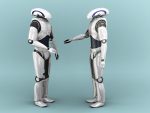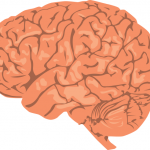
ROBOTS ARE INVENTING THEIR OWN LANGUAGES; THE PROGRAMMING AND DESIGN OF ARTIFICIAL INTELLIGENCE
Along with assurances that we’re facing an imminent takeover of industrial production by robots and other artificial intelligence (AI), we’re also being told that AI can develop its own systems of communication and operation, without help from humans.
Here is a sprinkling of quotes from the mainstream and technical press:
The Atlantic, June 15, 2017: “When Facebook designed chatbots to negotiate with one another, the bots made up their own way of communicating.”
Tech Crunch, November 22, 2016: “Google’s AI translation tool seems to have invented its own secret internal language.”
Wired, March 16, 2017: “It Begins: Bots Are Learning to Chat in Their Own Language.”
The suggestion is: AI can innovate. It can size up situations and invent unforeseen and un-programmed strategies, in order to accomplish set goals.
Who benefits from making such suggestions? Those companies and researchers who want to make the public believe AI is quite, quite powerful, and despite the downside risks (AI takes over its own fate), holds great promise for the human race in the immediate future. “Don’t worry, folks, we’ll rein in AI and make it work for us.”
Beyond that, the beneficiaries are technocratic Globalists who are in the process of bringing about a new society in which AI is intelligent and prescient enough to regulate human affairs at all levels. It’s the science fiction “populations ruled by machines” fantasy made into fact.
“AI doesn’t just follow orders. It sees what humans can’t see, and it runs things with greater efficiency.”
Let’s move past the propaganda and state a few facts. . . . Read Complete Report
~~~~~~~~~~~~~~~~~~~~~~~~~~~~~~~~~~~~~
Amazing! Conversation Between Robots – The Hunt for AI – BBC
YouTube ~ BBC
Published on Oct 3, 2015
Continue on Page 2>>









